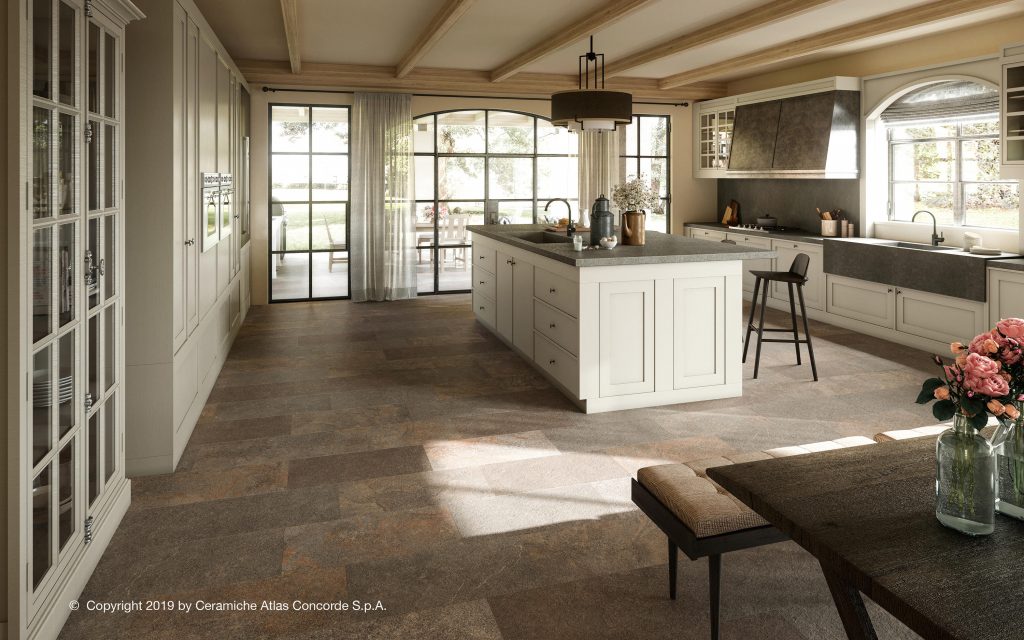Porcelain countertops have been gaining popularity in recent years due to their aesthetic appeal and durability. They are a great choice for homeowners seeking a sleek, modern look for their kitchen or bathroom.
However, one question that often arises when considering porcelain slabs for countertops is: do they crack easily? This blog post will delve into the durability of porcelain countertops and whether they’re prone to cracking.
Understanding Porcelain Countertops
Before we address the question of whether porcelain countertops crack easily, it’s important to understand what these countertops are made of. Porcelain is a type of ceramic that is baked at high temperatures to remove almost all the water content. This process makes it denser and more durable than other types of ceramics.
Porcelain slabs for countertops are typically made from a mixture of clay, feldspar, silica, and mineral oxides. The result is a very hard material that is resistant to scratches, stains, heat, and UV rays. It’s also non-porous, which means it won’t absorb liquids or harbour bacteria.
Do Porcelain Countertops Crack Easily?
Now let’s address the main question: do porcelain countertops crack easily? The simple answer is no. Due to their high density and hardness, porcelain slabs for countertops are highly resistant to cracking under normal use.
However, like any other material, porcelain isn’t completely indestructible. It can crack if subjected to extreme force or pressure. For instance, if you drop a heavy pot or pan on your countertop from a significant height, it could potentially cause a crack.
Factors That Can Cause Cracking in Porcelain Countertops
While porcelain countertops don’t crack easily under normal circumstances, there are certain factors that can make them more susceptible to damage:
- Improper Installation: If your countertop isn’t installed correctly – for example if it’s not properly supported or if there’s uneven pressure across its surface – this can lead to cracks over time.
- Thermal Shock: While porcelain is heat-resistant up to very high temperatures (around 1000 degrees Fahrenheit), sudden changes in temperature (known as thermal shock) can cause cracks. This could happen if you place a hot pot directly onto a cold countertop.
- Impact Damage: As mentioned earlier, dropping heavy objects onto your countertop can cause cracks.
How To Prevent Cracks in Your Porcelain Countertops
Despite these potential risks, there are several ways you can prevent cracks in your porcelain slabs for countertops:
- Proper Installation: Ensure your countertop is installed by professionals who understand how to handle and install porcelain correctly.
- Use Trivets or Heat Pads: Even though porcelain can withstand high temperatures avoid placing hot pots directly onto the surface; use trivets or heat pads instead.
- Avoid Heavy Impact: Be careful not to drop heavy objects onto your countertop; treat it with care just like any other part of your home.
In conclusion, while no material is completely immune from cracking under extreme conditions – including porcelain – with proper care and maintenance you should be able to enjoy your beautiful and durable porcelain slabs for countertops without worrying about them cracking easily.
Remember that the key lies in proper installation and mindful usage – treat your countertop with respect and it will serve you well for many years!

